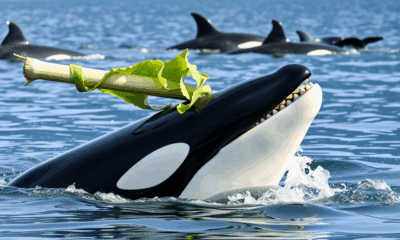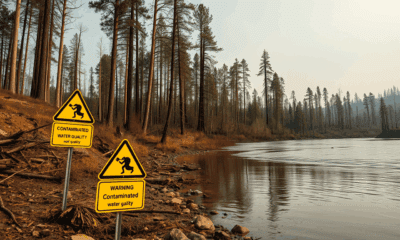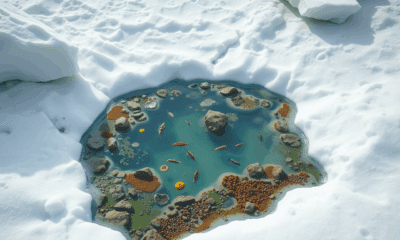

Southern resident killer whales have been caught on drone video crafting kelp tools to groom one another—an unprecedented behavior among marine mammals. This suggests a deeper...


Over 300 million years ago, Earth experienced powerful bursts of carbon dioxide from natural sources—like massive volcanic eruptions—that triggered dramatic drops in ocean oxygen levels. These...


Wildfires don’t just leave behind scorched earth—they leave a toxic legacy in Western rivers that can linger for nearly a decade. A sweeping new study analyzed...


Ancient coral fossils from the remote Seychelles islands have unveiled a dramatic warning for our future—sea levels can rise in sudden, sharp bursts even when global...


In a twist on conventional wisdom, researchers have discovered that in ocean-like fluids with changing density, tiny porous particles can sink faster than larger ones, thanks...


Beneath the forest floor lies an overlooked secret: many plants grow a second set of roots far deeper than expected sometimes over three feet down tapping...


Researchers at ETH Zurich have developed an astonishing new material: a printable gel that’s alive. Infused with ancient cyanobacteria, this "photosynthetic living material" not only grows...


Fierce, fast summer rainstorms are on the rise in the Alps, and a 2 C temperature increase could double their frequency. A new study from researchers...


Arctic peatlands are expanding with rising temperatures, storing more carbon at least for now. But future warming could reverse this benefit, releasing massive emissions.


During Earth's ancient Snowball periods, when the entire planet was wrapped in ice, life may have endured in tiny meltwater ponds on the surface of equatorial...